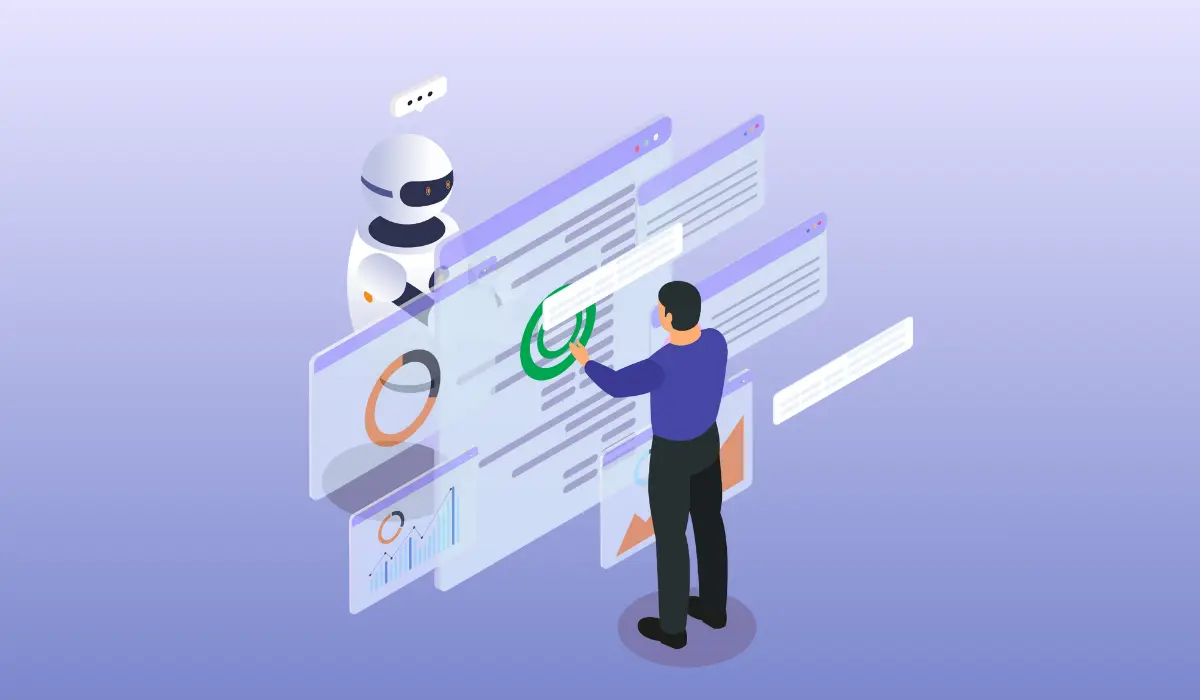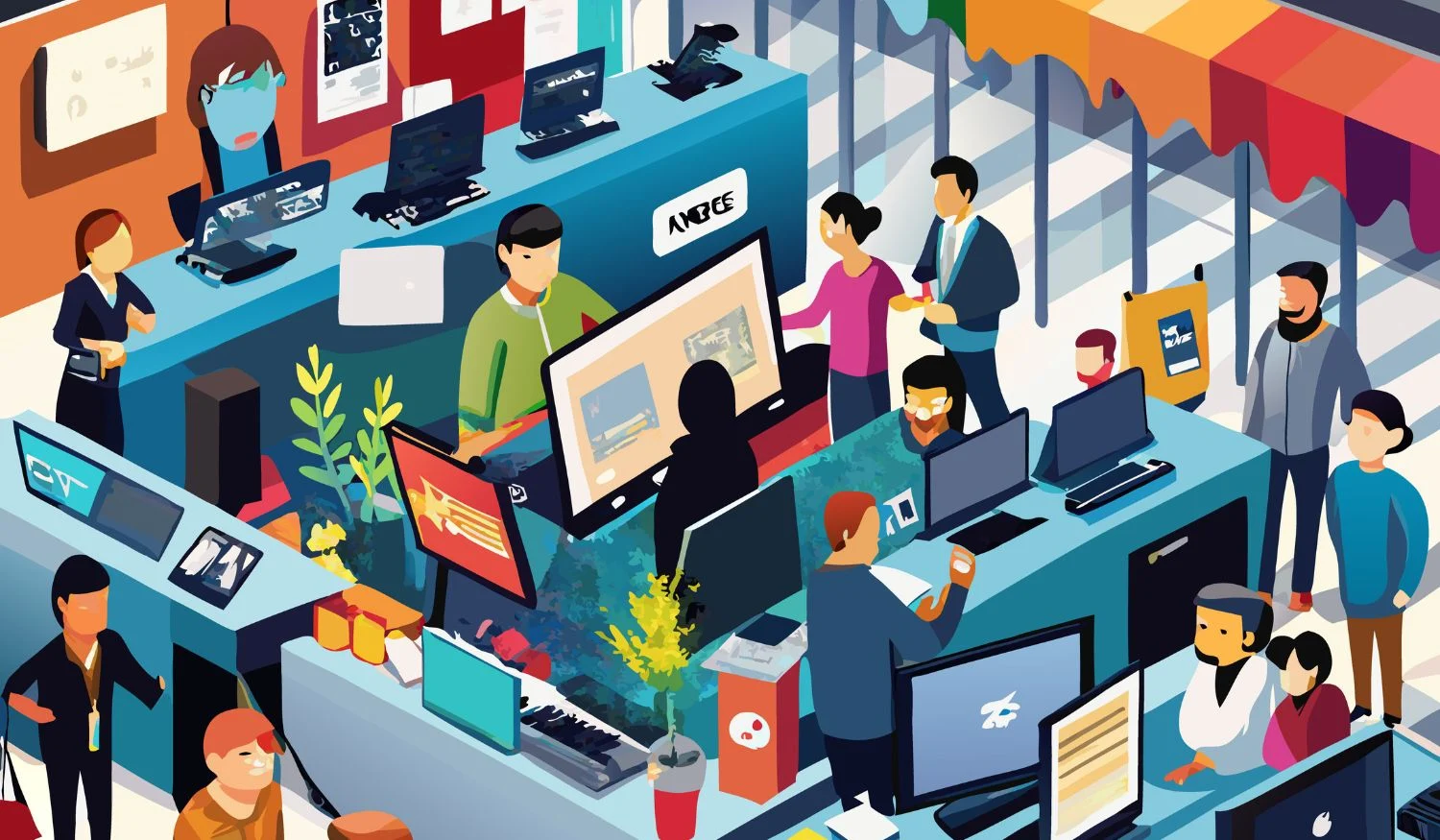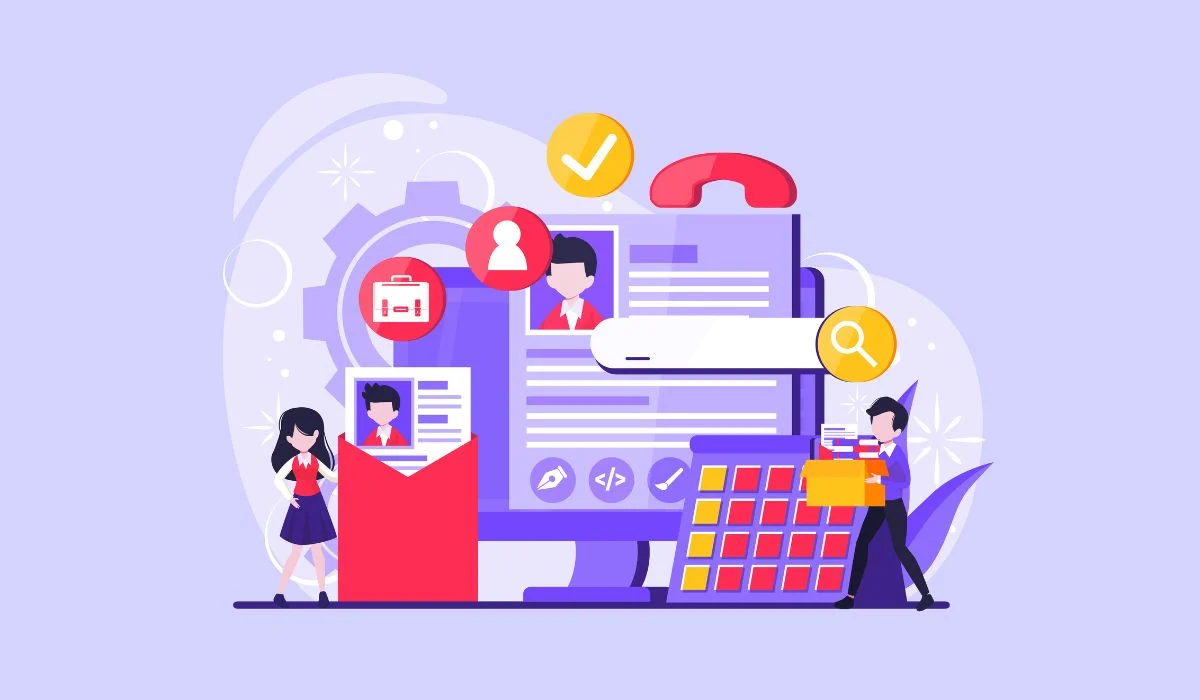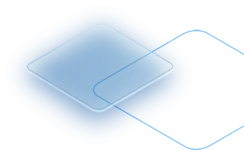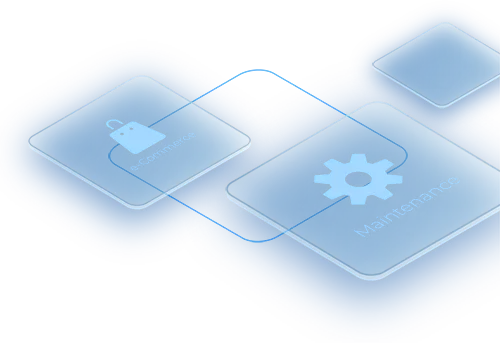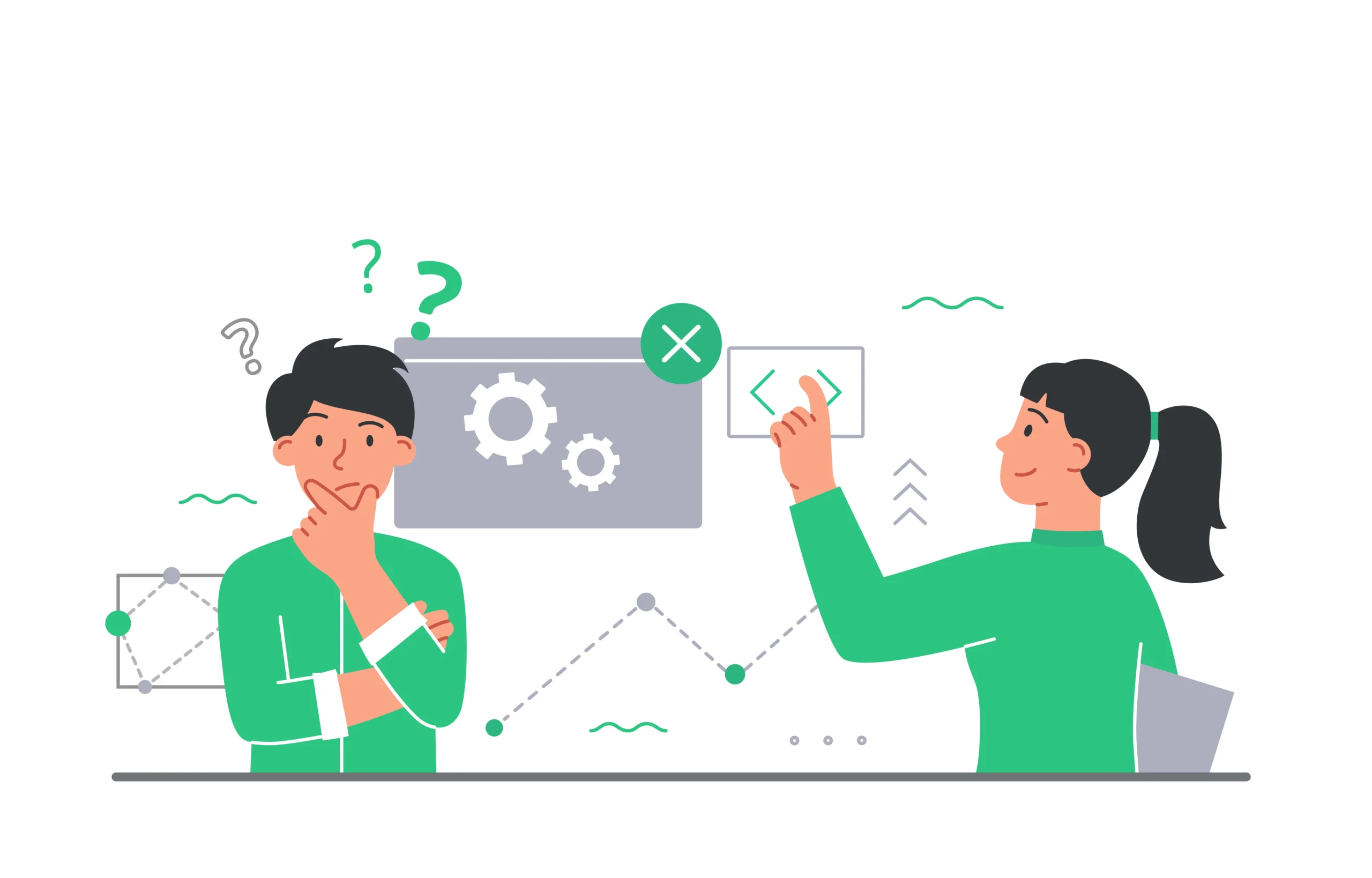
Why You Need ERP In Retail?
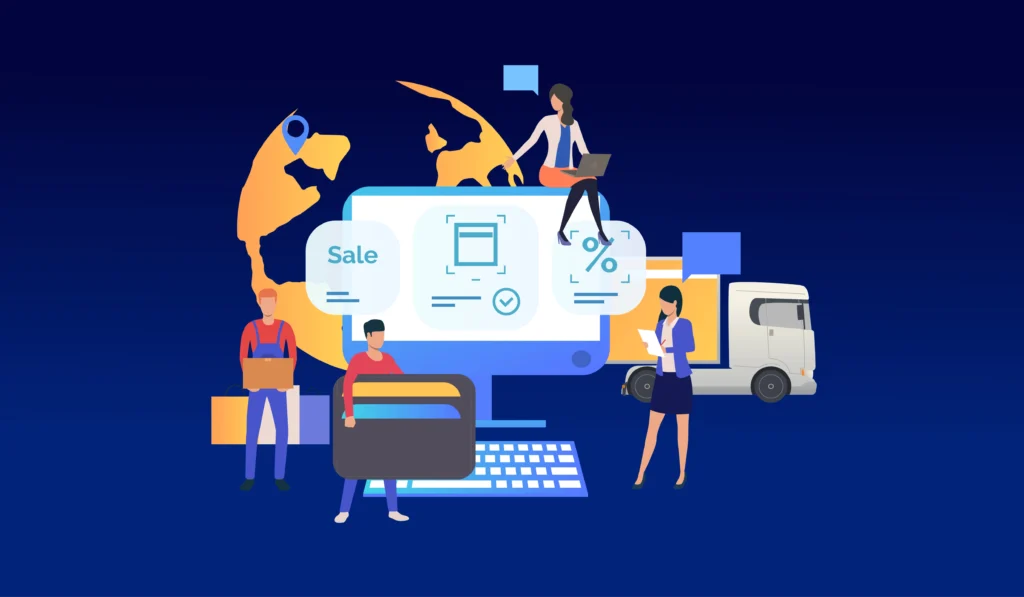
Why You Need ERP In Retail?
Today, Retail businesses work in an intensely difficult and competitive environment.
The sector is under constant pressure to deliver the best customer experiences while meeting the complex back-end operations accurately.
Managing inventory, tracking sales, and improving customer experiences are some of the constant challenges that they face.
With evolving customer expectations and multi-channel retailing becoming the trend, businesses are required to adopt integrated systems to stay relevant.
A system like that can easily manage all processes and simplify decision-making.
This is where the need for ERP software in the retail industry becomes vital.
The Retail ERP systems combine technology and business functions to help retailers adapt to market changes.
They deliver efficient management across inventory, finances, and customer data.
In this blog, we will discuss the importance of an ERP System in the retail industry, its basic features, benefits, and best practices for implementation.
Content Index
- What is Retail ERP?
- Difference Between Retail ERP and Traditional ERP
- Key Benefits of ERP in Retail
- Features of Using an ERP System
- Key Functional Areas of Retail ERP
- Types of Retail ERP Systems
- Best Practices for Implementing
- Conclusion

What is Retail ERP?
Retail ERP (Enterprise Resource Planning) is a system designed to manage key business processes in retail operations.
It integrates various processes into one system, allowing businesses to manage operations like sales, inventory, and finances.
This system focuses on real-time data sharing across departments, enabling better decision-making and resource management.
With Retail ERP solutions, businesses gain better visibility into operations, helping them make plans for business success.
These systems also facilitate smoother communication across departments and reduce inefficiencies.
Retail ERP solutions are highly customizable, catering to the unique needs of retail businesses.
Today, the need for ERP systems is critical in staying competitive and meeting customer demands.
For example, EBR’s ERP System is a reliable choice for managing complex retail operations effectively.
Difference Between Retail ERP and Traditional ERP
Retail and traditional ERP systems are designed with the purpose of integrating business functions but there are many key differences.
Traditional ERP solutions are generally designed for manufacturing, distribution, and other industries.
They focus on processes like production, inventory management, and order fulfillment.
Retail ERP solutions, on the other hand, are made to meet the unique needs of the retail sector.
These systems support real-time sales data, customer relationship management, and omni-channel strategies.
Retail ERP systems also focus on managing complex inventory across various locations, including stores, warehouses, and distribution centers.
When compared to this aspect, traditional ERP systems are often focused on a single-location operation.
Retail ERP emphasizes customer experience and retail-specific workflows, like point-of-sale (POS) integration, which traditional ERP may not offer.
Key Benefits of ERP in Retail
The need for ERP in retail becomes evident when you consider its transformative benefits.
Here are the top five benefits of using an ERP System in the retail industry:
Improved Efficiency
ERP systems integrate various retail functions into a single unified platform, eliminating the need for manual coordination.
By consolidating operations, businesses can reduce repetitive data entry and avoid errors caused by manual processes.
Employees can focus on critical tasks instead of spending time on unnecessary activities.
This efficiency allows retailers to enhance overall productivity, meeting customer demands more effectively.
Better Inventory Management
Retail ERP systems provide real-time visibility into stock levels across all locations, from stores to warehouses.
This feature helps businesses avoid situations of overstocking, which ties up capital, or stockouts, which disrupt sales.
Retailers can plan replacements correctly by understanding demand patterns.
Accurate inventory management directly impacts customer satisfaction and revenue, highlighting the need for ERP in retail to manage stock effectively.
Enhanced Customer Service
With Retail ERP systems, businesses can access customer data, purchase history, and preferences in real-time.
This information enables retailers to personalize interactions and resolve queries faster.
Faster service responses lead to better customer experiences and stronger loyalty.
In retail, where customer expectations are high, these capabilities make a significant difference.
ERP systems also support omni-channel retailing, helping businesses provide consistent service across various channels.
Data-Driven Decisions
Retail ERP systems offer centralized access to critical data, such as sales trends, inventory turnover, and customer behavior.
With real-time data, retailers can analyze key metrics and identify growth opportunities.
Decision-making becomes more accurate and timely, reducing guesswork and flaws.
The ability to make informed choices is essential in the competitive retail environment.
This underscores the growing importance of Retail ERP solutions for strategic planning.
Cost Reduction
ERP systems automate repetitive processes, reducing the need for manual intervention and lowering labor costs.
Integration of functions into one platform minimizes expenses related to managing separate systems.
Operational costs decrease as businesses experience fewer delays and errors.
Over time, retailers can achieve significant savings, enhancing profitability.
For businesses seeking cost-effective growth, the need for ERP in retail is not an option but a necessity.
Using an ERP system, retailers can improve efficiency, enhance customer service, and reduce costs, making it an essential investment.
Features of Using an ERP System
Retail ERP systems come packed with features designed to address the industry’s unique demands.
Some of the important features are:
Inventory Management
Retail ERP systems use advanced tools to track inventory levels in real time across multiple locations and warehouses.
Businesses can monitor stock at stores, online channels, and distribution centers simultaneously.
This real-time visibility minimizes the risks of overstocking and stock shortages, maintaining an efficient inventory balance.
Inventory tools also help track product movements, providing insights into demand trends and reducing wastage.
With better inventory control, retailers can meet customer demands without incurring unnecessary storage costs.
Point of Sale (POS) Integration
Point of Sale (POS) integration connects front-end sales systems with back-end operations, creating a unified platform for retail management.
This integration syncs sales data directly with inventory and financial systems, ensuring accurate record-keeping.
Retailers can access real-time updates on sales performance, revenue, and product availability across all locations.
POS integration helps process customer transactions seamlessly, improving speed and accuracy at checkout points.
The need for ERP in retail becomes evident as this feature supports operational consistency and accurate reporting.
Customer Relationship Management (CRM)
CRM tools in ERP systems enable retailers to manage customer interactions effectively, improving overall customer experience and satisfaction.
These tools store essential customer data, including purchase history and preferences, enabling personalized recommendations.
Retailers can use this data to create targeted promotions, exclusive offers, and loyalty programs that resonate with their audience.
The need for ERP in retail is especially evident in its ability to enhance customer relationships through these personalized experiences.
Automated communication features ensure customers receive updates on orders, promotions, and feedback requests on time.
Strengthening customer relationships through CRM capabilities helps retailers encourage repeat purchases and foster long-term loyalty.
Financial Management
ERP systems include integrated financial tools that simplify managing accounting, billing, and reporting from a single centralized platform.
These tools automate routine tasks, such as payroll processing, tax calculations, and invoice generation, reducing human errors.
Real-time financial data helps businesses track budgets, forecast expenses, and identify cost-saving opportunities.
Comprehensive reporting tools provide clear insights into profitability, cash flow, and overall financial performance.
The use of ERP Solutions can help businesses in achieving better financial control and informed decision-making.
Supply Chain Management
Supply chain management features in ERP systems offer full visibility into procurement, inventory movement, and order delivery processes.
Retailers can track supplier performance, monitor shipments, and predict potential disruptions in real-time.
This capability allows businesses to maintain sufficient stock levels and avoid delays that impact customer satisfaction.
Retail ERP systems help optimize procurement schedules, ensuring timely restocking without overextending resources.
By improving supply chain efficiency, businesses can enhance customer trust and maintain a competitive edge.
Key Functional Areas of Retail ERP
Retail ERP systems are structured around critical functional areas that are required for smooth operations:
Sales Management
Retail ERP solutions support multi-channel sales, helping businesses track customer orders from in-store to online channels.
Inventory Control
Managing inventory across various stores and warehouses is simplified, offering real-time updates and minimizing stock discrepancies.
Supply Chain Management
A key feature that helps manage the entire product journey from suppliers to end customers, ensuring timely delivery and cost control.
Finance & Accounting
Retail ERP integrates financial tools to track expenses, manage cash flow, and generate financial reports quickly.
Human Resource Management
ERP systems in retail often include payroll, attendance tracking, and employee performance management features.
Types of Retail ERP Systems
There are various types of retail ERP systems, each designed to meet specific business requirements.
On-premise ERP is installed locally on the company’s servers, offering high customization.
Cloud-based ERP is hosted online, providing flexibility and lower upfront costs.
Hybrid ERP combines on-premise and cloud features for tailored requirements.
Industry-specific ERP is designed exclusively for retail businesses, like EBR’s ERP System for the retail industry.
Best Practices for Implementing
Effective retail ERP implementation is crucial for realizing its benefits and using it to its full potential.
Here are some best practices for implementing an ERP System:
Define Clear Goals
Before implementing a system, it is important to set clear, measurable goals from the start.
Focus on key areas like improving inventory management or enhancing the customer experience.
Having specific objectives helps guide the implementation and ensures everyone is on the same page.
Engage Stakeholders Early
Involving key team members early in the process is essential.
By getting input from those who will use the system, you can ensure it meets the unique needs of your business.
This collaboration makes the transition smoother and fosters a sense of ownership.
Train Staff Thoroughly
Proper training is crucial for success.
Make sure your staff understands how to use the ERP system effectively.
When employees are confident with the system, it helps avoid mistakes and boosts productivity, leading to a better experience for everyone.
Test the System
Before going live, always test the system thoroughly.
This helps catch any issues before they affect your business operations.
Testing ensures the software is fully functional and ready to support your retail operations without hiccups.
Monitor and Evaluate
After your ERP system is up and running, don’t just set it and forget it.
Keep an eye on how it’s performing and make adjustments when necessary.
The need for ERP in retail is to maintain efficiency, so regularly evaluating its performance helps you make sure it’s doing just that.
Conclusion
Retailing is a human-centered business, where relationships and experiences are everything.
That’s why adopting an ERP system is not just about technology but supporting your people and providing better service to your customers.
With the right system in place, your team can focus on what they do best – helping customers and making meaningful connections.
With ERP retail solutions, you can improve your business conditions and build a loyal customer base.
Take a look at these detailed insights into ERP systems.
- ERP Systems: Understanding Implementation Cost Factors
- Why You Need ERP in Construction?
- Why You Need ERP In Professional Services?
- Why You Need ERP In Hospitality?
Let's Connect!
Are you currently exploring software solutions for your business? 🤔
Great! What’s the single biggest challenge you’d like a software solution to solve for your business? 🎯
💡 Suggested Solution Ideas:
Just one more step! Share your details so our experts can connect with you personally and discuss tailored solutions. 🤝
Thank You for Connecting! 🎉
We've received your information and a specialist will be in touch with you very shortly to discuss how we can help your business thrive.
In the meantime, feel free to browse our resources or reach out if you have immediate questions.
Understood! 🙏
No worries if you're not exploring software solutions right now. Our door is always open if your needs change!
Feel free to explore our other offerings or connect with us anytime.
Featured

